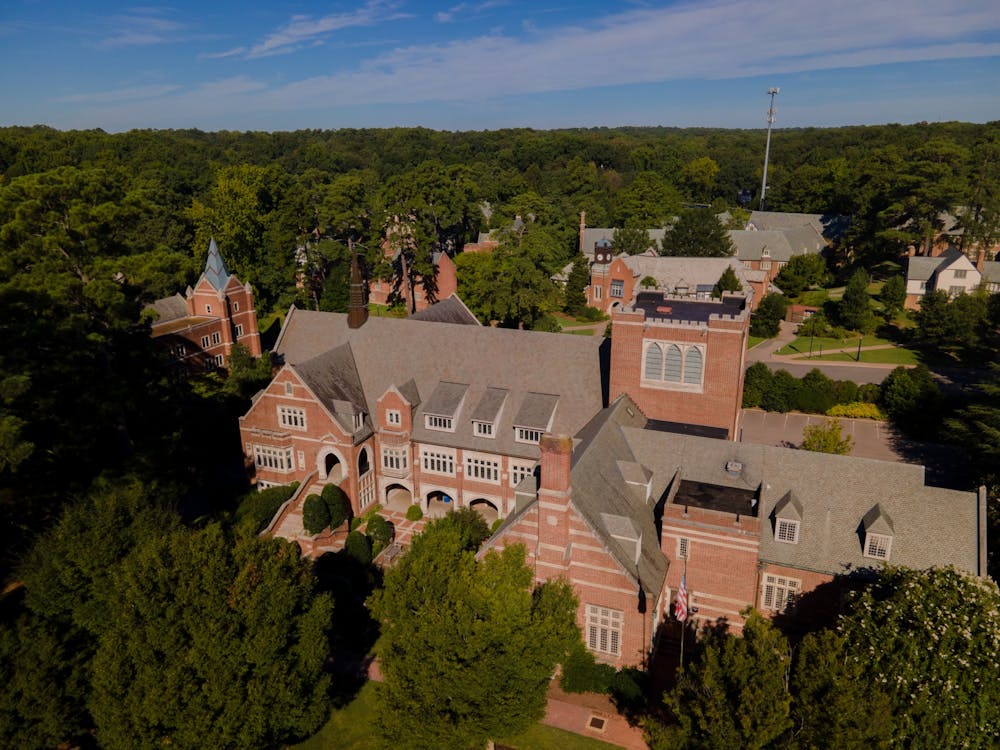Award-winning author and poet Saeed Jones talked to students and faculty about his powerful poetry and memoir on April 6 as part of the English department’s Writers Series.
Over a dozen students, faculty and families of faculty gathered in the Brown Alley Room in Weinstein Hall. During the reading and question-and-answer session, Jones touched on such topics as grief, abuse, racism, Black history, family, aging, police brutality and gun violence.
His debut poetry collection, “Prelude to Bruise,” was chosen as a 2014 finalist for the National Book Critics Circle Award for poetry.
“I consider myself a poet first,” he said.“I take it with me everywhere I go.”
His memoir, “How We Fight for Our Lives,” won the Kirkus Prize for Nonfiction in 2019. Jones said the book had taken between five to nine years to write because of the extent of personal experiences he decided to include.
Jones was born in Memphis, Tennessee, in 1985. Much of his writing pulls from personal trauma and experiences with abuse, he said.
“It’s hard enough to live, let alone write about it,” he said.
In most of his work, Jones references his mother and her death. In the context of including her experiences and role in his writing, Jones said he was still dealing with the ethics and responsibility years later. Jones said he felt discomfort writing about other people, especially his late mother, who wasn’t here to decide whether she wanted her deep hardships shared.
In addition to reading excerpts from his published work, Jones read poetry from his new book, “Alive at the End of the World,” which is scheduled to be released in September.
In this collection, Jones said he had wanted to capture chaos. He does so literally and figuratively — writing on topics including abuse, death and gun violence while rotating the poems horizontally in the book to create more discomfort for the reader.
He arrived at the title of the book by thinking of our perception of apocalypses, Jones said.
“All of our cultural reference points for the end of the world are linear,” he said. “We tend to talk about dystopias and apocalypses as something we’re barreling towards…what if they’re already behind us.”
Enjoy what you're reading?
Signup for our newsletter
Later, Jones referenced world tragedies such as mass shootings and racism as apocalyptic events.
During the Q&A, first-year Alan Declerck asked Jones how writing about the end of the world impacted how Jones felt about the future.
“It’s calming and humbling to understand what direct peril and atmospheric peril look like,” Jones said.
First-year Evelyn Zelmer asked Jones about how his move to Columbus, Ohio, from New York impacted his work.
“I have a clearer sense of the world from moving around,” Jones said. “It makes you realize it’s not just us.”
At the end of the evening, English professor Bertram Ashe asked the author how he chose what to write about.
“Ask me in three months and my answer would be different,” Jones said. “When the muse shows up, you make yourself available.”
Contact contributor Cortney Klein at cortney.klein@richmond.edu.
Support independent student media
You can make a tax-deductible donation by clicking the button below, which takes you to our secure PayPal account. The page is set up to receive contributions in whatever amount you designate. We look forward to using the money we raise to further our mission of providing honest and accurate information to students, faculty, staff, alumni and others in the general public.
Donate Now



